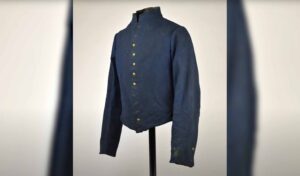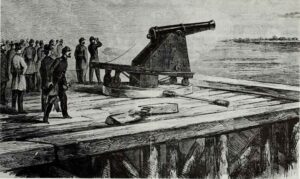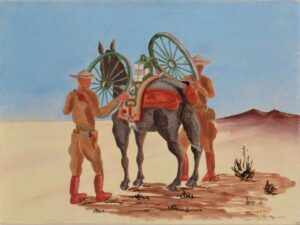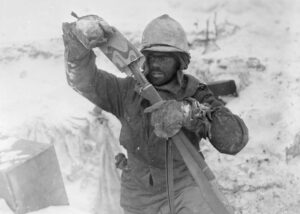Emancipation of the slaves in Texas:
“On June 19 [Union Brigadier General Gordon] Granger made the news of freedom official. He stepped onto the balcony of Ashton Villa, the former headquarters of the Texas Confederate Army, and read General Orders No. 3. The order informed the slaves that the war was over and that they had been freed by the Emancipation Proclamation two and one-half years earlier.”
The actual event commemorated by “Juneteenth” was a small and seemingly unimportant event to the lives of most the population of the United States. General Granger’s reading of General Orders No.3 in Galveston, Texas on 19 June 1865 occurred simultaneously with two other orders that day. As recorded in the New York Times, no special significance was attached to Orders No.3 compared to the other two. No.5 pertained to the proper sale of cotton under the auspices of federal agents from ports in New Orleans or New York, and No. 4 declared the acts of the Texas legislature and governor illegitimate and paroling all military and civil officials associated with the Confederate government. Still, it was the order pertaining to slavery and the emancipation of the slaves that would symbolize what had been gained after five long years of war.
Brigadier General Gordon Granger had a distinguished career leading up to his historic moment in Galveston. A career Army officer, he graduated from the United States Military Academy in 1845 and like many of his fellow West Point alums he saw action in the Mexican-American War as a second lieutenant. Fighting in the Siege of Veracruz and through to the Battle for Mexico City, Granger was outshone by contemporaries like Robert E. Lee but he did receive two citations for gallantry.
Granger, like many other northern white Americans at the time, probably had a fairly conservative view of the issue of slavery and black civil rights. Also, like many northern Americans, granger was a fervent Unionist and saw upholding the constitution as a sacred duty.[ii] During the Civil War Granger quickly rose through the ranks, first as a mustering officer in Ohio, then as a division inspector, and then as an acting assistant adjutant general for Major Samuel Sturgis.[iii] In this capacity he saw his first action of the war, a minor skirmish at Dug Spring on 1 August 1861 in which Sturgis’s force made up the right wing. A much more significant battle would occur nine days later at Wilson’s Creek, and saw Captain Granger be commended for “active and conspicuous gallantry” and brevetted a Major.
The aftermath of Wilson’s Creek saw a meteoric rise for Granger. From still holding a Captain’s rank at age 40 to being a Brevet Major General by the War’s end, like many other West Point alums and Mexican War veterans, Granger’s experience and level-headedness under fire were invaluable to the Union cause.
The end of the Civil War did not come evenly to the South. By late Spring 1865 it was clear the end was near though. Granger commanded the IX Corps attached to the Army of West Mississippi when it captured Fort Blakeley 9 April 1865, just hours after the surrender of Robert E. Lee at Appomatox Courthouse. Much of the Confederacy East of the Mississippi had been subdued by Union arms, but there were still stretched west, particularly in Texas, that had yet to see the return of United States sovereignty. Granger was given orders to head to Texas, a June 13 dispatch from General Phillip Sheridan instructed:
“On your arrival at Galveston assume command of all troops in the State of Texas; carry out the conditions of the surrender of General Kirby Smith to Major-General Canby; notify the people of Texas that in accordance with the existing proclamation from the Executive of the United States ‘all slaves are free’; advise such freed-men that they must remain at home; that they will not be allowed to collect at military posts, and will not be supported in idleness. Notify the people of Texas that all acts of the Governor and Legislature of Texas since the ordinance of secession are illegitimate. Take such steps as in your judgment are most conducive to the restoration of law and order and the return of the State to her true allegiance to the United States Government.”
For enforcing emancipation upon the population of the South, President Lincoln’s Emancipation Proclamation was the legal precedent. The 13th Amendment outlawing slavery was still being debated in Congress, and would not be ratified until December 6th. Texas, unlike the other Confederate states, had never truly been conquered by the Union Army during the war. Seeing the writing on the wall, most Confederate forces in Texas had dissolved before or shortly after Confederate General Kirby Smith surrendered his army to Union forces on 2 June, which raised concerns that “many white Texans did not feel defeated and were not inclined to comply with Federal orders and laws.” All this meant that bringing freedom to the slaves came down to its practical enforcement by Army units like those under Gordon Granger in Texas.
On 19 June 1865, General Gordon Granger crafted the three new general orders. The first of which he likely read aloud from the Ashton Villa balcony he had made his quarters:
General Order No. 3
The people of Texas are informed that in accordance with a Proclamation from the Executive of the United States, all slaves are free. This involves an absolute equality of personal rights and rights of property, between former masters and slaves, and the connection heretofore existing between them, become that between employer and hired labor. The freed are advised to remain at their present homes, and work for wages. They are informed that they will not be allowed to collect at military posts; and that they will not be supported in idleness either there or elsewhere.
General Orders No.3 had the practical effect of liberating from enslavement many thousands more slaves than had been in Texas at the start of the War. As Texas had avoided liberating Union armies, many Southerners throughout the confederacy brought their slaves to Texas in order to keep them from the armies of emancipation. It also had the important and heretofore undeclared effect of treating black Americans as “absolute” equals in the rights. This was a step further than was the case in much of the nation, as the 14th and 15th amendments were yet to pass.
Granger, whose views on race likely were not that different form many northerners when the war began, had developed a more liberal take on race relations. He had commanded United States Colored Troops since 1864 beginning with the Mobile Campaign, and in 1865 the XIII Corps he commanded had numerous USCT regiments. USCT troops had been instrumental I the final three years of war in supplying the Union with the manpower fresh will needed to close out the war, and Granger had seen that firsthand. Thus, when it came to liberating slaves in Texas, former slaves were among the Federal troops responsible for that duty.
In the absence of a civil government in the state, granger served in effect as the head of administration for the State. His stay in the state lasted until August, after which time a more formal structure was created, and organizations like the Freedmen’s bureau came into the state. Until then, however, many acts of violence were perpetrated by former Confederates on the freed population of blacks. Granger issued orders on June 26 directing former slaves to avoid traveling and stay at their residences (with their former masters) under contract. The roads were seen as a particularly dangerous place for black Texans to be on, as there were numerous instances of freed blacks on the move being set upon by white Texans.
In the background of Juneteenth, the new military administration of a State, and a recalcitrant white population, Granger was also dealing with issues at the Mexican border. France had invaded Mexico in 1861, and would remain in the country until 1867. Numerous Confederates had joined up with the French supported Emperor Maximillian, and the border was generally a dangerous place with smugglers working both sides. With so many competing draws on resources, it is clear why Ulysses grant and Phillip Sheridan saw the “Texas problem” as one of the most vexing in the aftermath of Appomatox.
This “Emancipation Day” in Texas came to be known by several different names as it evolved: firstly, it was “Jubilee Day,” then by the 1890s the term “Juneteenth” began being used to describe it. The first Jubilee Day celebrations occurred on the one-year anniversary of the reading of General Orders No. 3. Celebrations included singing, dancing, and pyrotechnics that included “cutting holes in trees, filling them with gunpowder, and lighting the trees on fire.”[i] These celebrations were often localized and limited to majority free-black colony cities, though celebrations in the larger cities of Texas among the afro-Texan population also occurred.
The successes and failures of the Reconstruction in the United States can be seen in the perception, acceptance, and celebration of Juneteenth as a holiday over time. The early years of Reconstruction saw the heyday of this celebration. Many former slaves had a direct connection to the reading of General Orders No. 3 or its immediate impact of emancipation. Additionally, the protections afforded by the military government of Texas allowed a greater freedom to the African American populations in the state to express themselves and their culture. The crackdown that occurred towards the end of Reconstruction, with the Federal government ceding civil responsibility and protection of rights back to the Texas and other southern states resulted in a heavy backlash form the majority-white population. Such overt expressions of Union triumph and the defeat of the Confederacy as a celebration of emancipation were seen as threats to a new segregationist civil society that sought to dimmish the political power of black citizens.
Today, Juneteenth has achieved a wide recognition across the United States. On 18 June 2021, President Joe Biden signed into law “A Proclamation on Juneteenth Day of Observance” and made the reading of General Orders No.3 a federal holiday.







